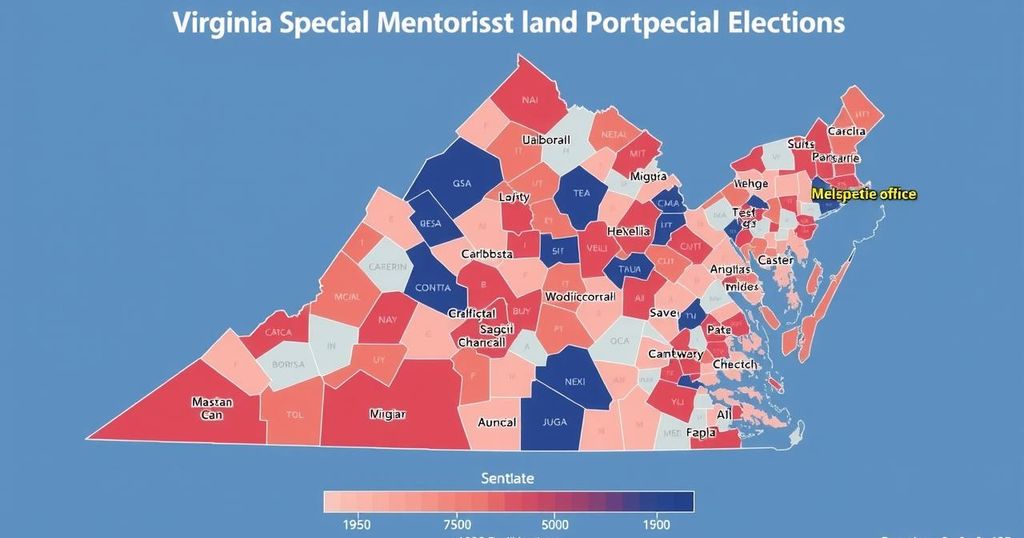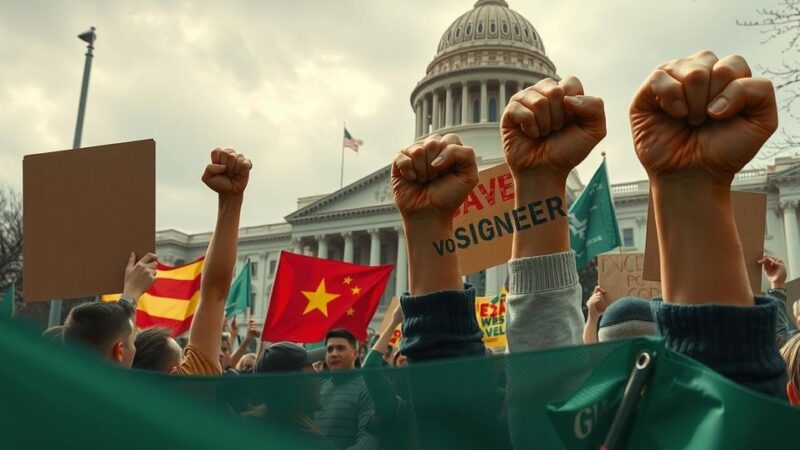Virginia’s special elections revealed no significant political shift since November as Democrats maintained their majorities despite a snowstorm impacting turnout. Analysts caution that these results merely underscore the existing partisan divides, and forthcoming gubernatorial elections may better assess voter sentiments regarding the Trump administration.
Virginia’s recent special elections indicate stability in the state’s political landscape, as Democrats retained their slender majorities in both legislative chambers. The elections, which followed a snowstorm that may have affected voter turnout, produced results consistent with the partisan divisions observed in the November elections. Democrats succeeded in two deeply Democratic Loudoun County districts, while Republicans continued to control a secure Senate seat in central Virginia. Analysts suggest that these elections do not reflect broader shifts in voter sentiment since the election of President Donald Trump.
The outcomes of these special elections follow the appointments of two former state senators to Congress and highlight that the partisan landscape in Virginia remains divided, with Republican Glenn Youngkin serving as governor, while Democrats maintain control of the state Senate and House of Delegates. As Virginia prepares for November gubernatorial elections, this year’s contests are expected to provide clearer insights into voter attitudes towards the Trump administration and the Republican Congress.
Experts argue that the special elections are not indicative of larger trends, and Stephen Farnsworth, a political science professor at the University of Mary Washington, emphasized that they merely reflect the existing partisan divisions. Democratic candidates Kannan Srinivasan and JJ Singh secured significant victories in their respective races, bolstering the Democrats’ majority in the legislature. In contrast, Republican Luther Cifers maintained a traditional Republican foothold in the state Senate.
The political environment in Virginia has been notably dynamic, especially following the 2022 elections that resulted in Donald Trump being elected for a second term. The current special elections serve as a preliminary gauge of voter sentiment post-Trump’s election and allow observers to evaluate potential shifts in political allegiances. Virginia’s governance is divided with a Republican governor, while Democrats control a narrow majority in the state legislature. The significance of these special elections lies in their ability to forecast potential outcomes for upcoming gubernatorial races.
In conclusion, the recent special elections in Virginia reflect a continued adherence to the existing partisan divisions rather than a significant political shift. With the Democratic Party retaining its positions in key legislative districts and Republicans holding secure seats, the state’s political landscape appears stable heading into the fall elections. As the gubernatorial race approaches, the outcomes of these elections will provide valuable context for understanding voters’ attitudes toward the current political climate.
Original Source: rollcall.com






